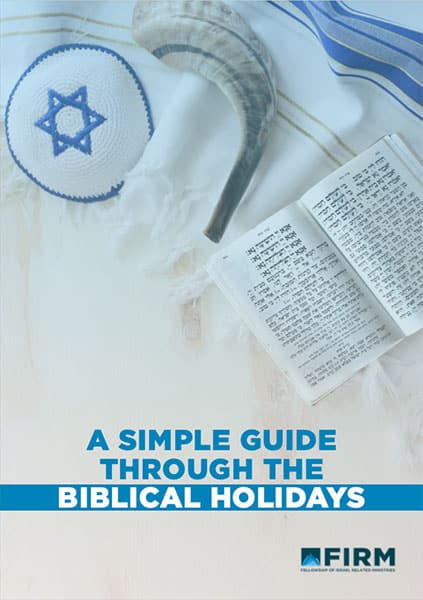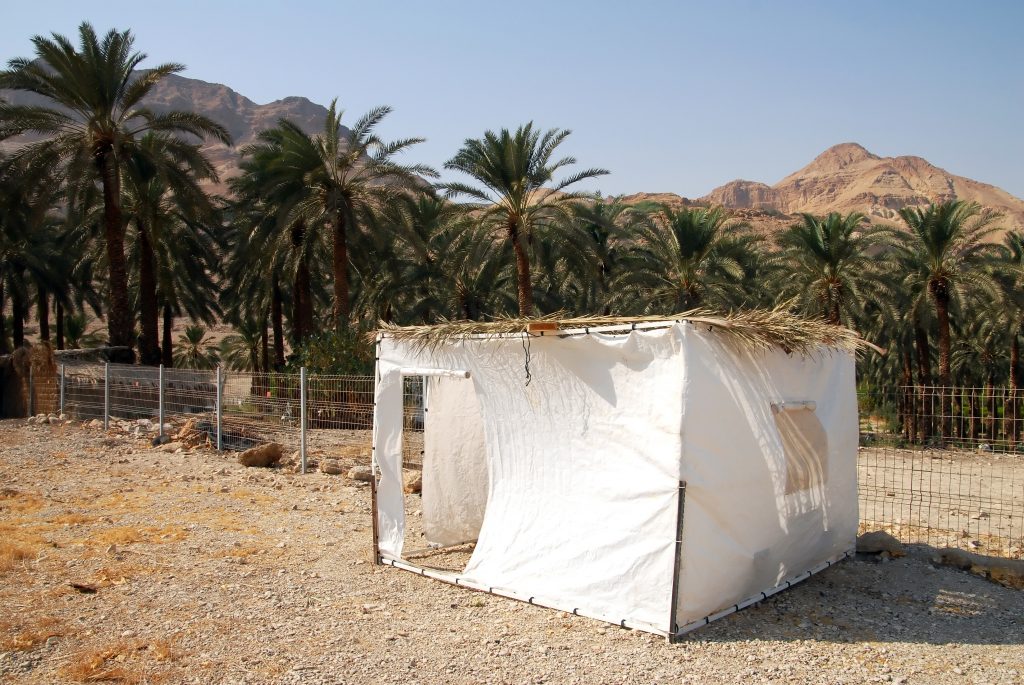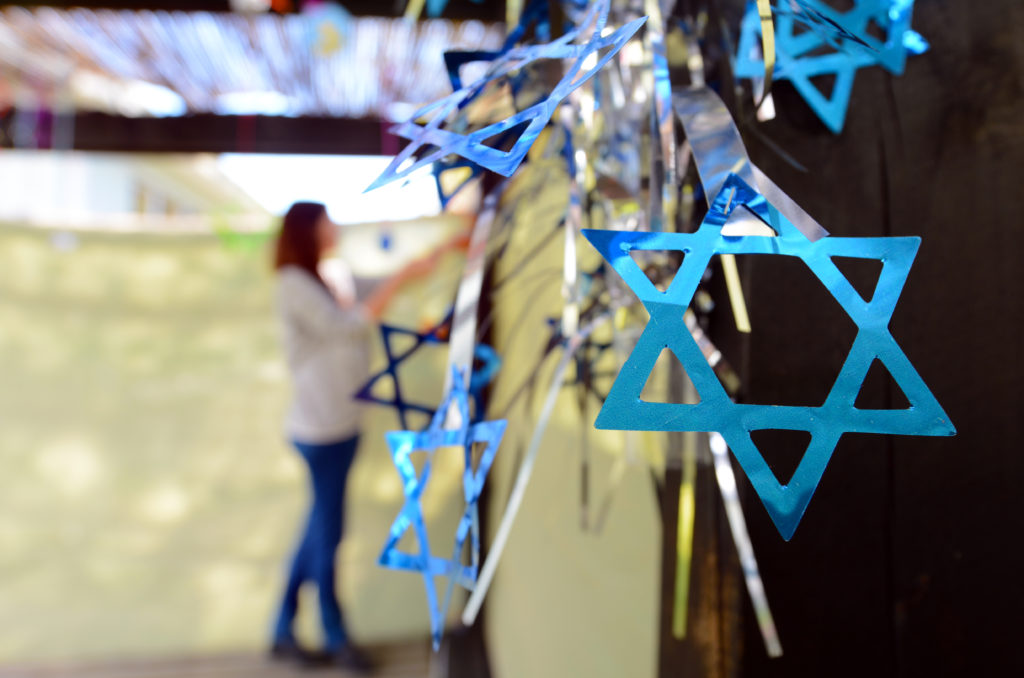Sukkot and Israeli Families
In today’s Israel, Sukkot is about being together. Almost every Biblical holiday is about community, but Sukkot – the Feast of Tabernacles – in particular. God commanded His people to fellowship together and celebrate together as a family.
The Bible says that God told the Israelites to put up booths, temporary dwellings, and live in them for a week. In them, the people dined, slept, prayed, sang songs and remembered God’s faithfulness.
We spoke to some of our friends about how they celebrate Sukkot in Israel. FIRM local partners observe the holidays and many keep very unique traditions. Read on to find out what they are.
Believers Share Personal Experiences of Sukkot in Israel
We hope you got a chance to read how some of our friends at FIRM local partners celebrate the Fall holidays. You can read about first hand holiday experiences here: Rosh HaShanah and Yom Kippur with local believers.
The authors are Israeli and just like their Jewish neighbors they celebrate the Feasts of the Lord that we know from the Bible.
Right now we are preparing for the Festival of Booths – Feast of Tabernacles. It just a very colorful, loud and joyful time. But just as every family is different, so are their traditions. The following memories were shared by a local partner of FIRM who chose to remain anonymous, to protect his family.
My Jewish Feast of Tabernacles
Every year in this season, my family and I build a Sukkah (“booth”) on our patio overlooking the Judean Hills. What is a Sukkah, you may ask?
It is a small, boxy structure, built on either wood or metal poles, wrapped around with cloth for its walls, and covered with either palm leaves or bamboo sticks for a roof.
Building a Sukkah is something I look forward to every year since becoming a father. The kids get so excited as they help me build it, and then decorate it with their very own paper crafts, which they make at school and at home.
The Biblical Background
In my time of personal reflection this season, I was thinking about the reason why we do what we do. Is it just tradition? Or is there something much deeper? Every year at Sukkot (Feast of Tabernacles) we sit in our Sukkah, we sing and celebrate, and I remind my family of the wonderful verses from Leviticus 23:39–43:
On exactly the fifteenth day of the seventh month, when you have gathered in the crops of the land, you shall celebrate the feast of the LORD for seven days, with a rest on the first day and a rest on the eighth day. ‘Now on the first day you shall take for yourselves the foliage of beautiful trees, palm branches and boughs of leafy trees and willows of the brook; and you shall rejoice before the LORD your God for seven days.
You shall thus celebrate it as a feast to the LORD for seven days in the year. It shall be a perpetual statute throughout your generations; you shall celebrate it in the seventh month.
You shall live in booths for seven days; all the native-born in Israel shall live in booths, so that your generations may know that I had the sons of Israel live in booths when I brought them out from the land of Egypt. I am the LORD your God.’ So Moses declared to the sons of Israel the appointed times of the LORD.
The fact that we can do this very thing today – in our home just outside of Jerusalem, in the Land that was promised to Abraham, Isaac, & Jacob – is nothing short of a miracle!
Sukkot in Israel
Over the years, our family has adopted a tradition on this special holiday: at dinnertime in the Sukkah we go around the table and share something for which we are thankful.
We remember God’s faithfulness to the Children of Israel during the 40 years in the wilderness. And then we share reasons for gratitude from our own lives. Why do we do this? Because the LORD instructed us to!
The children of Israel lived in these booths temporarily in the wilderness, all the while looking forward to the day when they would reach the Promised Land.
Today, as children of God, we are to remember that this home on earth is our temporary home. Because we look forward for our everlasting home with Him! As we dine in our Sukkah, we look to the day when we will worship Him in the New Jerusalem.
A Personal Experience of “Tabernacles”
Sukkot is also a time of reflection on how God brought me out of my personal “Egypt”. As I look at all He has blessed me with today and reflect on the way He provided for me during this journey, I am humbled.
The fact is that the same God who delivered my people years ago from bondage is the same God we believe in today! He is the same yesterday, today, and forever.
People tend to take blessings for granted. And we tend to easily forget. It’s part of our human nature. I believe God knew this about us from the creation of the world. This is one of the reasons He gave us His feasts, the appointed times – so we remember.
Set Up, But Ready to Follow
Another believer in Israel, Miriam, told us what the holidays looked like for her family.
We always put up a “tent” together, back in the day my parents would really put their all into setting it up. Today, you can even buy a ready-to-assemble “sukkah set”, that includes a metal or plastic structure and fabric that goes over it like a tent.
The important thing is that this “tabernacle” is actually supposed to be wobbly, not permanent. It needs to remind us of the time when Israelis camped in the desert and really didn’t own much. When the pillar of cloud or of fire would move, they had to pack up their tents and move after it.
Giving Thanks and Celebrating Community
My daughters love this holiday, because they love sleeping in our sukkah. We decorate it together, my girls make a lot of crafts and then we hang them up. They are very happy to practically live in this wobbly booth for the entire week! But it is the first night that is the most festive.
Sukkot is about family, community, about giving thanks, and about the harvest. As first generation Israelis, since I was the first one of my family to make aliyah, we love to invite others to our sukkah. If they don’t have a family in Israel, or just immigrated to the country, we love having them join us.
And so one year, we had a few Holocaust survivors join us. Last year, a large group of Ukrainian immigrants came to our Sukkot dinner – their first in Israel! It is so special to introduce others to this holiday, but also to be able to celebrate together, as one people.
It is a time to be thankful for God’s provision and His promises.
Appointed Times in Israel
The mo’edim (appointed times) in the Scriptures serve as a reminder to the children of Israel of God’s amazing faithfulness. They are fixed times when we remember the incredible miracles that He has done on our behalf, for His glory. They are times when we remember how much we need Him in our lives.

A Simple Guide Through the Biblical Holidays: Free PDF Download
You may know them as the “Jewish holidays,” but did you know the Bible calls them “Feasts of the LORD”?
We’ve put this guide together for you so that you have all you need to know about these holidays that God calls His own.
What are the Jewish High Holidays? When did they originate and how are they celebrated today?
Articles Related to Sukkot in Israel: Personal Experiences of Local Believers
Estimated reading time: 4 minutes

